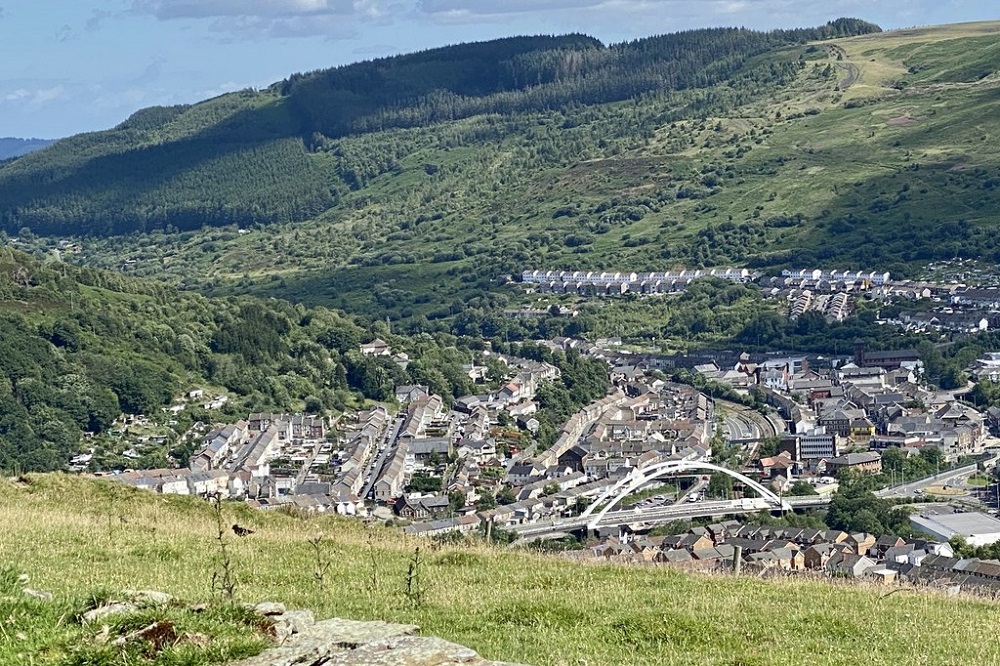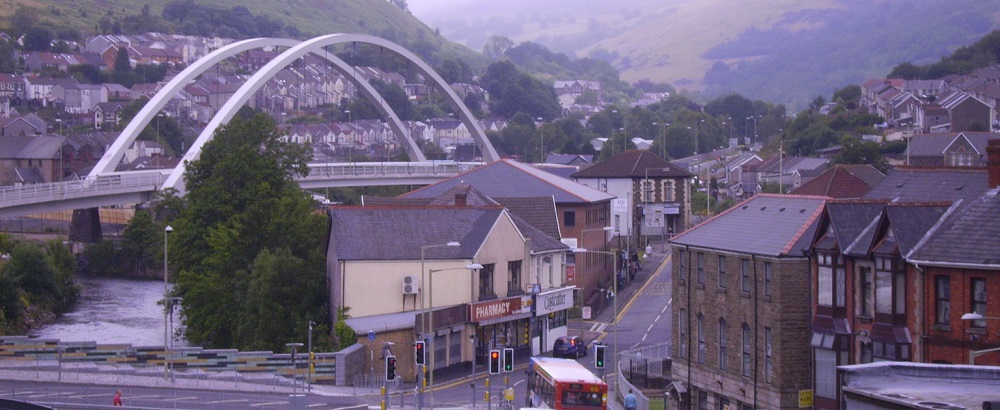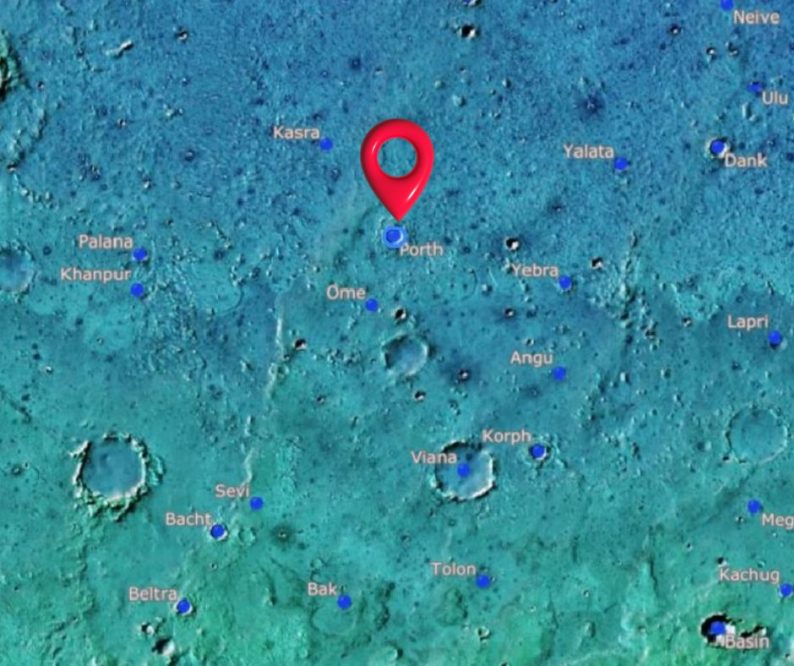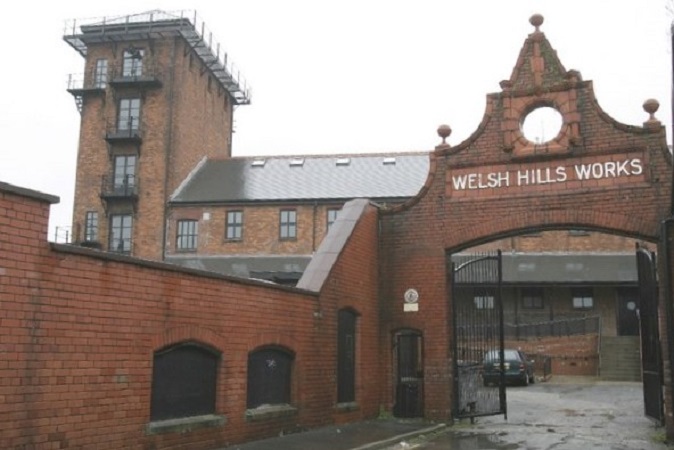Up The Rhondda! Gateway to the Stars

Nation.Cymru is delighted to bring you another extract from ‘Up The Rhondda!’ by John Geraint, which has just been published by Y Lolfa.
John Geraint
I’m a sucker for space travel. Oh, I know there are better ways humanity could spend its money; but I can’t help myself. It’s not so much the technology of moon-shots that excites me. It’s the drama, the romance, the imagination, the sheer ambition of reaching for the stars.
And staring up at the sky on a cloudless night blows my mind. I know, of course, that each one of those twinkling points of light is actually a massive sun, sending its rays billions and billions of miles to reach my eyes, a journey that may have taken centuries.
But looking up, I can’t quite get my head around the fact that any two stars, which appear to me as neighbours just a smidgeon apart in the night sky, might actually be just as astonishingly far from each other as they are from me.
Suddenly, I get a tiny sense of the scale of the cosmos, not as a fixed dome arching above me and my little world down here, but as an exploding three-dimensional space of almost infinite size, and one that’s continuing to expand at vast speed even as I look at it.
And that’s just too much for me to take in.
Life on Mars
The other question that fascinates me – like many rock fans whose formative years were spent listening to David Bowie in the 1970s, I suppose – is the one about Life on Mars?
Viewing the astounding pictures sent back to Earth recently by the Mars Rover and its Ingenuity helicopter, I’m determined to live long enough to witness the day NASA brings back rock samples from the Red Planet for testing here on Earth, tests that may determine if indeed there was once life there.
I’ve a decade or two to wait yet, so wish me luck!
Reading around the subject, though, I discovered an amazing fact the other day. There’s a place on Mars named after a town in the Rhondda. I’ll type that out for a second time, just in case you didn’t take it in, or you can’t quite believe your eyes…
There’s a place on Mars named after a town in the Rhondda.
Martian craters
The place I’m talking about is one of 277 Martian craters which were named in the 1970s, just after Bowie killed off Ziggy Stardust, by the International Astronomical Union.
The IAU’s mission is to promote astronomical research, education and development through global cooperation. It bears official responsibility, on behalf of everyone on Earth, for naming features on other planets.
And in August 1976, meeting in Grenoble, the IAU’s Working Group for Planetary System Nomenclature decided that a crater in the Tritonis Lacus Region of Mars would be called… Porth.

That’s right: Porth. And yes, it really is named after our Porth, the gateway to the Rhondda Valleys, the town where I went to secondary school.
You can see it listed there, if you look up the Transactions of the International Astronomical Union for 1976.
It takes its place in the alphabetical list of newly designated Tritonis Lacus craters, between the ones named for the towns of Phon in Thailand and Troika in Russia: ‘Porth, UK (Wales)’, says the official minute.
If you’re thinking of visiting, it’s probably on Google Maps nowadays, but to save you the trouble, it’s located at 21.4°N, 255.9°W. And, before you ask, Porth the Crater is 9.3 kilometres across.
That’s about the distance from our Porth to Maerdy.

Back in 1976, four other towns in the United Kingdom got a crater on Mars named after them, but Porth was the only one in Wales.
One of the distinguished astronomers from all over the world who served on the Working Group for Planetary etc. was Tobias C Owen.
He went on to become an author of both popular and highly specialised books about the planets and their atmospheres, and he played a significant role with NASA in guiding its early missions to Mars.
Toby Owen – he must have had Welsh ancestry, surely… and that makes me wonder if he played a crucial part in labelling ‘our’ crater.
Heartbreak valley
It’s an interesting choice of a name, isn’t it? ‘Porth’. In Welsh, it’s Y Porth, the gate or gateway – porth is a portal or a door, or in computer terminology, a device used to connect two different networks, a connection to the internet. And, yes, sitting there where the Rhondda Fawr meets the Rhondda Fach, Porth is our gateway, the portal to the Rhondda.
It’s a place of transition, a place you have to go through to get to somewhere else. I think of the thousands and thousands – the millions – of journeys Rhondda people have made through Porth over the years, some much more significant than others.
In the coal rush of Victorian times, the gateway to the Rhondda welcomed tens of thousands of new residents, all eager to share in the wealth the mines were creating.
In the Depression of the 1930s, tens of thousands were passing through Porth in the opposite direction, leaving ‘Heartbreak Valley’ forever to seek work in Slough or Reading, or some other distant English town, “having to sing their songs in a strange land”, to quote former Mayor of Rhondda Annie Powell.
Pinch point
Yes, places so strange, so alien to the Rhondda, to its landscape and its values, that they might as well have been going to Mars.
And the comings-and-goings go on, to this very day: every working morning, every working evening, commuters negotiate the pinch-point of Porth; and families leave and newcomers arrive for the longer term.
Porth, of course, is more than just somewhere people pass through. It’s home to six thousand people and has a rich history of its own.
One of its most fascinating stories is that of William Evans, of Thomas and Evans grocers, and the genesis of the most successful brand ever to come out of the Rhondda, Corona pop.

Gateway
But Porth was a gateway in another sense for me – the sense that the dictionary defines as ‘a way of achieving something’. Hard work, they say, is the gateway to success.
Porth was where I went to school, and I did work hard there – honest. But Porth County was more than a gateway to academic achievement. Lifelong friendships were formed with my classmates (even if some of them were on another planet!).
And the school and its teachers opened doors for me to many things – storytelling and history and the Welsh language – which have remained close to my heart ever since.
In 1976, just as the Porth crater was being named, NASA’s Viking 1 lander was transmitting the first fuzzy images back to Earth from the Martian surface.
It’s tempting to wonder, now that the Red Planet is being mapped in hi-definition digital detail, whether distinct areas of the crater will get names of their own: Birchgrove and Britannia, perhaps; Glynfach, Llwyncelyn, Mount Pleasant.
And just beyond its edge, future Martian explorers might find their rovers trundling through Ynyshir or Trehafod, Cymmer, Dinas or Trealaw.

Stellar ambition
Is there life on Mars? There certainly is in Porth – a new transport hub, and now that Valleys Kids have taken over William Evans’s old pop factory, a vibrant centre for youth arts and creativity of all kinds.
As with what’s already been achieved in Treorchy’s high street, let’s hope we’ll soon see a revival of Hannah Street, Porth – a revival of the glory days of Thomas and Evans fame, making the town once again a place with a name that’s worth shouting to the ends of the earth… and way beyond the confines of our small planet.
Yes, why not? The lift-off of a stellar ambition: Porth – the Gateway to the Stars.
‘Up The Rhondda!’ by John Geraint is published by Y Lolfa at £9.99. It’s available from any good bookshop, or directly from Y Lolfa
John Geraint is one of Wales’s most experienced documentary film-makers. His acclaimed debut in fiction, The Great Welsh Auntie Novel, was published in 2022. In this new book based on his popular John On The Rhondda podcasts, John Geraint fixes – with a film-maker’s eye – the experience of life in this vibrant, globally-renowned mining community.
Support our Nation today
For the price of a cup of coffee a month you can help us create an independent, not-for-profit, national news service for the people of Wales, by the people of Wales.






